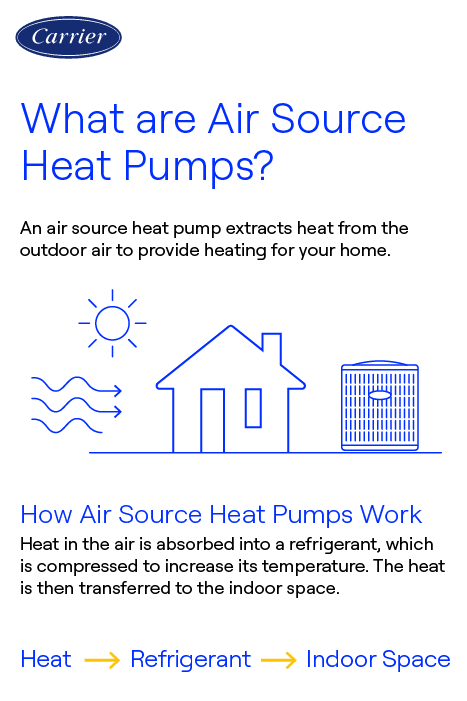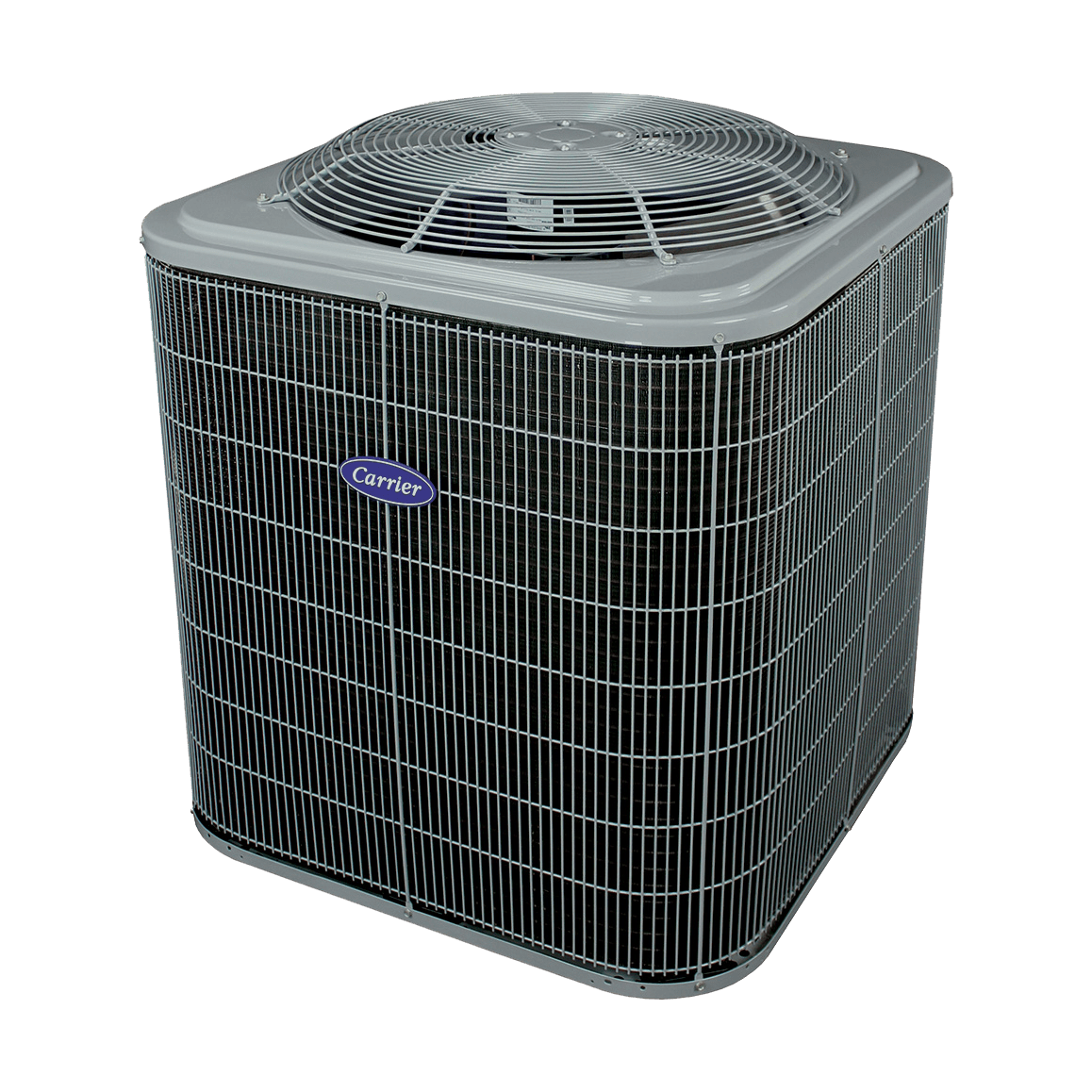Air Source Heat Pumps
Air source heat pumps transfer heat between the indoors and outdoors to provide efficient heating and cooling, delivering year-round comfort while lowering energy costs and reducing environmental impact. As a smart, sustainable solution for modern homes, they combine performance, reliability, and energy efficiency. Book a consultation with your local Carrier dealer today to find the right heat pump solution for your home.

What is an Air Source Heat Pump?
How Air Source Heat Pumps Work
Benefits of Air Source Heat Pumps
Increased Efficiency and Performance
- Outside temperature
- Insulation quality
- System maintenance
Provide Year-Round Comfort
Long-Term Savings
Reduced Environmental Impact
Versatile Installation

Types Of Air Source Heat Pumps
Single-stage vs. Variable-speed Heat Pumps
- Single-stage heat pumps operate at full capacity whenever they run, making them less efficient for maintaining steady indoor temperatures.
- In contrast, variable-speed heat pumps can adjust their output based on demand, providing better energy efficiency, improved comfort, and quieter operation. These models reduce energy consumption by running at lower speeds for longer periods, avoiding frequent cycling.
Ducted vs. Ductless Air Source Heat Pumps
- Ducted heat pumps use existing ductwork to distribute conditioned air throughout the home, making them ideal for homes with central HVAC systems.
- Ductless heat pumps, often know as mini split heat pumps, are a great solution for homes without ducts, offering zoned temperature control and easy installation. They are highly efficient and are an ideal HVAC option for old houses, home additions, or spaces where ductwork is impractical.
Dual Fuel System Options
What Affects the Costs of Air Source Heat Pumps?
Choosing the Right Air Source Heat Pump
Key Considerations

Connect With A Carrier Dealer
Explore Carrier Heat Pumps
Up to 18.5 SEER2 for enhanced energy savings with enhanced comfort features. Features InteliSense™ technology
Our highest efficiency and most advanced heat pump with up to 23 SEER2 for premium energy savings with extremely quiet performance and premium comfort features.
Up to 16 SEER2 for moderate energy savings with standard comfort features.
Frequently Asked Questions On Air Source Heat Pumps
Learn More About Heat Pumps
- Find a Heat Pump expert in your area
- Get information about the Cost of a Heat Pump
- Find out “How Does a Heat Pump Work?”
- Learn the difference between Heat Pumps vs Air Conditioning
- Let's start with the basics - What is a Heat Pump?
- Learn about Heat Pump Efficiency and SEER Ratings
- Learn about Heat Pump Troubleshooting
- Heat Pump Not Heating Or Cooling
- Heat pump Service
- 3 Reasons To Consider A Heat Pump
- Heat Pumps: A Sustainable Comfort Solution
- Discover heat pump tax credits
- In need of heat pump repair?
- Learn about heat pump installation
- How much will a heat pump increase my electric bill?
- Get in the know on cold climate heat pumps
- Learn if you need a 3 ton heat pump




